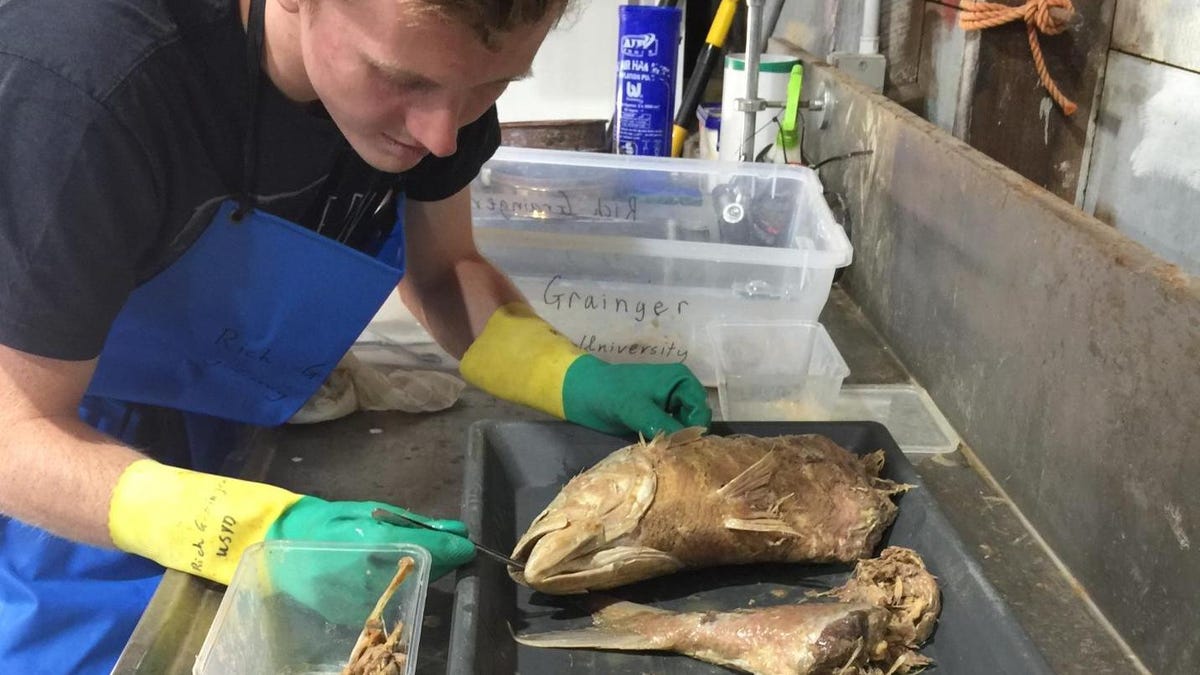Great white shark stomachs reveal surprising diet secrets
Scientists are disproving the Jaws-style feeding stereotypes of great whites.
Let's hit pause on the Jaws theme music. Scientists inspected the stomach contents of 40 juvenile white sharks from off the coast of Australia and discovered their diets involve a lot more seabed-level meals than previously known.
"The stereotype of a shark's dorsal fin above the surface as it hunts is probably not a very accurate picture," said University of Sydney Ph.D. candidate Richard Grainger. He's the lead author of a study on white shark feeding habits published on Sunday in the journal Frontiers in Marine Science.
You can see what the hands-on stomach analysis process looked like in an image released by the University of Sydney on Sunday.
The sharks' diet consisted mostly of mid-water fish like Australian salmon (32.2%), but bottom-dwelling fish like sole made up a significant 17.4% of the stomach contents. The rest consisted of prey like reef fish and stingrays. There were also some unidentified fish in the mix.
The stomach contents study looked at great white sharks like this one seen swimming off the coast of east Australia.
The researchers matched up their data with previous research on the subject. "This indicates the sharks must spend a good portion of their time foraging just above the seabed," said Grainger.
The juvenile sharks covered by the research had mostly been snacking on small bites. "The hunting of bigger prey, including other sharks and marine mammals such as dolphin, is not likely to happen until the sharks reach about 2.2 meters in length," said Grainger.
The study pointed to larger sharks choosing higher fat diets, a finding that makes sense considering their energy needs.
The deceased sharks were caught in nets deployed by the New South Wales Shark Meshing Program, which is designed to protect swimmers from marine predators, but also causes the deaths of some animals. "No animals were killed specifically for this research," the scientists noted in their paper.
The findings could help with species management and conservation decisions. "Understanding the nutritional goals of these cryptic predators and how these relate to migration patterns will give insights into what drives human-shark conflict and how we can best protect this species," said study co-author Gabriel Machovsky-Capuska.
It's also a good reminder that Jaws was a work of fiction and that sharks have more important things to do than troll shallow waters for humans.


